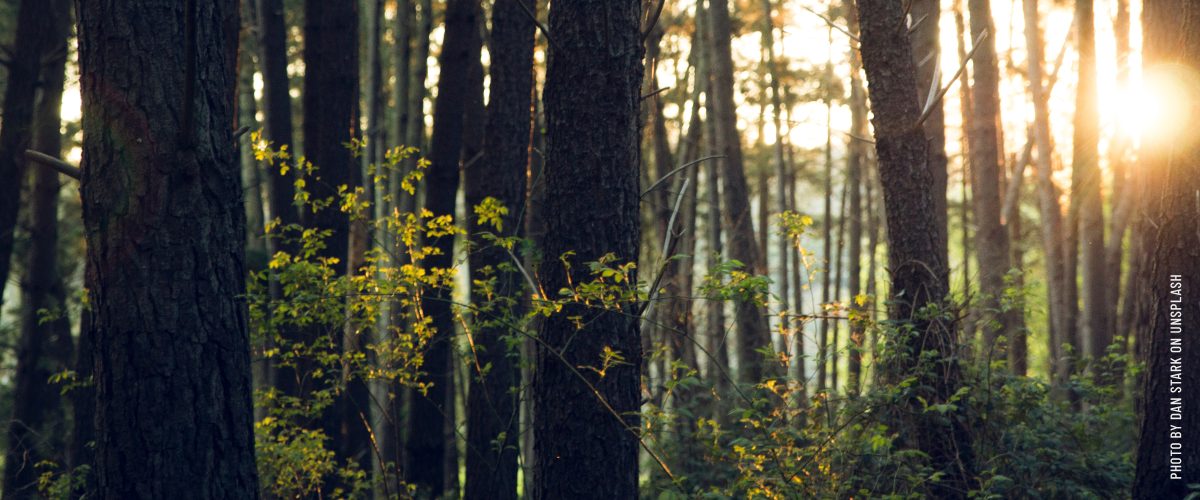23. August 2023
Green revolution in bio-compostable plastic “We need to get into action now!”
Interview with Jayu Yang, CEO and co-founder of GRØNBLÅ and Dr. Shu Yuan Yang, Professor and Director of Research.
Ms. Jayu Yang, you are well known in the bicycle industry as the CEO of Haro Bikes and former OEM manufacturer Kenstone before, among others. How did you get the idea to get involved with bio-compostable plastic?
Jayu Yang: Anyone involved in the production and shipping of bicycles and bicycle parts knows the amount of packaging material we use in the bicycle industry and how many other products we use are made of plastic. The traditional business model was “making money by making more”, and the impact on the environment is huge. That is also the reason why I sold Kenstone in 2019 and decided to pursue a different business approach. For me, there was a personal turning point when I became deeply involved with the impact of plastic on our environment and eco-friendly alternatives.
Why do we need degradable bio-compostable plastic?
Jayu Yang: Conventional plastics made from fossil fuels such as petroleum, among others, can remain in the environment for hundreds of years. I also visited recycling facilities. Even with the current recycling efforts, there is still a lot plastic waste being burned or buried without being recycled. This poses a significant threat to ecosystems, wildlife and human health. If we truly want to minimize plastic in our environment, I believe 100% bio-compostable material is the solution. By developing and deploying bio-compostable alternatives on a large scale, we can address the problem of plastic pollution and greatly lessen the damage.
Can you describe the problem in more detail and provide numbers?
Jayu Yang: The amount of plastic waste keeps increasing. According to the European Commission, we are talking about around 26 million tons of plastic waste per year in the EU alone. Only a very small part of this is recycled; most of it is incinerated. A good portion is also exported from industrialized countries to other continents and is thus officially considered recycled. However, we know that large quantities of it end up in the water and in the oceans via detours, for example landfills. This creates macro and microplastics that are highly dangerous to animal and human organisms and take centuries to decompose.
What was your idea and drive to start a new company dedicated to bio-compostable plastic and the circular economy?
Jayu Yang: As I mentioned previously, the traditional concept is by making more and more, and enterprises encourage the society to keep consuming. Many years ago, while I was standing at Kenstone square, looking at a lot containers to be loaded and shipped. At the beginning I was happy that we made new sales record. But very soon I realized, do we really need so many bikes in our life? Why we have to make money by continuing to consume resources on earth? Something must be changed. We cannot turn a blind eye to the environmental consequences for ourselves and the next generations. And we must move into action when we know we can create sustainable alternatives in plastics. That was and is my maxim with the founding of GRØNBLÅ two years ago. We are about revolutionizing packaging and accessories with 100% bio-compostable plastic, and, most importantly of all, to provide a recycling solution. Every industry and every company can contribute to solving the task of becoming much more environmentally friendly in this area. In the bicycle industry, there is a growing awareness that we need to become more sustainable at all levels. The good news is that together we can do it.
Dr. Shu Yuan Yang, you are head of research at GRØNBLÅ. What are the benefits and challenges when we talk about bio-compostable plastic?
Dr. Sh- Yuan Yang: Bio-compostable plastics can be naturally broken down by microorganisms into simpler substances such as water, carbon dioxide and biomass. This degradation process can take place in a variety of environments, such as soil, water and, ideally, special composting facilities. The biggest benefit is obviously that by bio-compostable plastic, we can break down plastic material to prevent its accumulation in our environment. Furthermore, there is potential for the breakdown product to be repurposed into valuable material that has a new life. This would reduce the need for new virgin plastics and further increase sustainability of using bio-compostable plastic.
A major challenge in using bio-compostable plastic is that there are numerous different types that are different in composition. This means their degradation conditions will also differ, and in fact, many of them appear to not be so easily composted. For developing biodegradation technology, it is quite important to start with materials with known chemical compositions so that methods to effectively breakdown a specific type of bioplastic can be developed. This is why we are choosing to work with specific bio-compostable plastic.
Why haven't bio-compostable plastic been widely used for a long time?
Dr. Shu Yuan Yang: Bio-compostable plastic have not been as popular as petroleum-based plastics mainly due to their higher costs of manufacturing. Of course, with the environmental cost of the resulting waste becoming more prominent, the calculation is starting to shift towards using bio-compostable plastic.
Several types have been advertised as being bio-compostable, but currently such a strategy is also not being used at any meaningful scale. The challenge is that we need separation from petroleum-based plastics in recycling. In addition, bio-compostable plastic requires different processes and a longer period of time for industrial composting. That is why we have developed our own recycling economy. In fact, the efficiency and capacity of our current model still has plenty of room for improvement if its scale were to be further extended. We are in the process of optimizing all steps of the procedure, from setting up collection strategies that ensures a continuous stream of sufficiently pure bioplastics to shortening the time needed for complete biodegradation of the bioplastics. We have a good starting point and are planning to introduce improved practices into the pipeline on a rolling basis.
Why is it so important to build our own circular system?
Dr. Shu Yuan Yang: Closed-loop systems are crucial for bio-compostable plastics because they allow us to harness the full potential of these materials in a sustainable way. Bio-compostable plastics have the advantage of degrading naturally. However, when they end up in conventional linear waste management systems, such as landfills, their ability to degrade is limited due to the lack of oxygen and microbial activity. By implementing circular systems, we can create closed-loop systems where bio-compostable plastics are collected, composted, and returned to the production cycle, reducing waste and maximizing their environmental benefits.
How can closed-loop systems for biodegradable plastics be implemented effectively?
Jayu Yang: Thinking big, we need cooperation between a wide range of stakeholders, including national governments, industries, waste management companies and, of course, consumers, for implementation. But there is still a long way to go before that happens. But what we can already implement with comparatively little effort is closed-loop systems within specific industries. I am convinced that the bicycle industry, which has made sustainability a strategic asset, can not only quickly achieve significant improvements in this area, but also become a pioneer for others.
What do companies have to do? And what are the benefits?
Jayu Yang: First of all, it is important to create awareness in the industry of the problems and the solutions, and then to translate this into an efficient process that is geared to individual circumstances. Then, in practice, the key is to create effective collection and separation mechanisms to ensure that bio-compostable plastics are properly separated from other waste streams and then composted industrially.
Where do the plastics go after collection? To regional disposal companies?
Jayu Yang: This is precisely where there has been a gap so far, and we want to close it together with partners from industry. We assume that soon it will be a matter of course to work with take-back systems and to operate industrial composting plants of various sizes at appropriate locations. These can also be integrated directly at the bicycle production site.
What is the state of the art in industrial composting plants for bio-compostable plastic?
Dr. Shu Yuan Yang: The technologies for industrial composting plants are there, and they require specialized equipment with controlled conditions, including proper temperature, moisture and oxygenation. For bio-compostable plastic, they are bio-compostable in industrial composts, but the process takes longer than many other biological waste. Therefore, it is important to continue to improve the technology. Currently we are testing microbe and enzyme mixes for boosting the decomposition process. By enhancing the biodegradation efficiency of bio-compostable plastic, the process will become easier and economically more attractive. Our goal is to develop this strategy to be the leading method for managing bio-compostable waste.
What happens to the decomposed material?
Dr. Shu Yuan Yang: By returning the resulting compost or the degraded material to the production cycle, for example for agricultural purposes, the cycle is closed with the use of these material for sustainable purposes. Plastics and packaging then no longer become hazardous macro- and microplastics, but fertilizer.
What are other visions you have for bio-compostable plastic?
Dr. Shu Yuan Yang: There are many types of plastics, and they all are part of our world’s plastic problem because, they are very stable. We are starting with one type of bio-compostable plastic, and we are working on maximizing its economic circularity. There are research groups in the world that are developing methods to process other popular types of plastics sustainably, and a great vision would be if one day, a stepwise or unified procedure becomes available to deal with all major types of plastics. This would simplify collection, recycling, and repurposing of different plastics. We are working very hard to becoming part of that solution.

